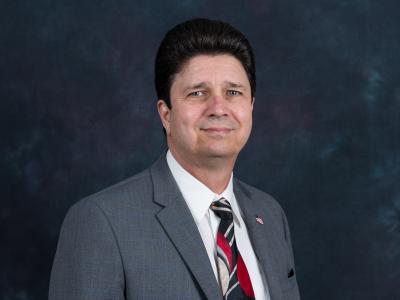by Tyra Watts
Student retention and enrollment data were some of the topics discussed at the Kean University Full Senate Meeting held via Zoom on March 1, 2022.
Michael Salvatore, Senior Vice President of Administration, addressed the Senate about enrollment. .
According to current enrollment data, 12,020 students are enrolled in the Spring 2022 semester, a decrease from the 12,053 that was shown last week.
In the last five years, student growth has decreased, with the COVID-19 pandemic playing a part.
There has also been a shift in ethnicity. In the last four years, Kean students have identified as white. This year, however, Hispanic/Latino are the leading ethnic background.

Salvatore said the enrollment data will be available to the public in the summer.
“This is not something hidden for administrators to play with,” Salvatore said. “This is something we want to give to our full campus community.”
The chairperson of the Student Retention and Admissions Committee discussed why some Kean students leave.
Dr. Martha Salama, Chairperson of the committee, showed a PowerPoint that highlighted two important reasons why students were leaving Kean: they need better help with advisement and more assistance communication-wise.
“Students are changing their majors before and after they are declaring. They are switching majors, seeking advisement, and they may not get the advisement that they need, so they might be losing credits and going somewhere else for a better bargain,” Dr. Salama explained.

She pointed out that freshmen are getting the most help when it comes to advisement (one-on-one help), whereas sophomores, juniors, and seniors are only getting their advisement from their professors, and that there is a lack of focus.
Dr. Salama said that the future is technology, and wants Kean University to have more technology on its campus. She provided an example of how Rutgers University has a Mac computer in every room, whereas at Kean, although the computer lab at Miron Student Center has been revamped, it only has one printer that barely works. This led to her asking questions in terms of where the money is being spent.
“We are creating more fear for these students by not preparing them for the workplace,” Dr. Salama stated.
She ended her presentation with solutions, such as looking for technological advancements and watching what other schools are doing, donating library books to make space for study rooms, better improvement of the Office of Computer and Information Services (OCIS) department, and online doctoral programs.

Towards the end of the meeting, Dr. Donovan provided time for panelists and audience members to ask and answer questions and leave comments.
Both panelists and audience members had questions regarding student distancing, advisement, and assistance with student loans.
On the topic of advertisement and assistance with student loans, an anonymous audience member asked Dr. Salama about the need among the students for advisement support versus identification of opportunities to monetize their learning to pay off their student loans.
“Personally, that sounds like two different things,” Dr. Salama began. “Advisement is one thing. They need advisement, they need help, and when they’re being offered help and taking the time to receive the advisement from their professors, that’s how they’ll know what’s around campus and that we’re here.”
Dr. Donovan chimed in to clarify what the student was asking. Who is advising students about picking a major that will, in the end, pay off their student loan debt? He then offered his perspective on the topic of financial opportunities of different majors.
“I can speak for my one daughter who went to college and ran into this kind of ‘Here’s what I want to do, but it pays almost no money and I’m not sure if I can pay off my student debt if I do this thing’,” Dr. Donovan explained. “I graduated with $7,000 of student debt after five years at the University of California as a transfer. It’s a different world out there today.”
The next full Senate meeting will take place on Tuesday, March 22, 2022, on Zoom.

You must be logged in to post a comment.